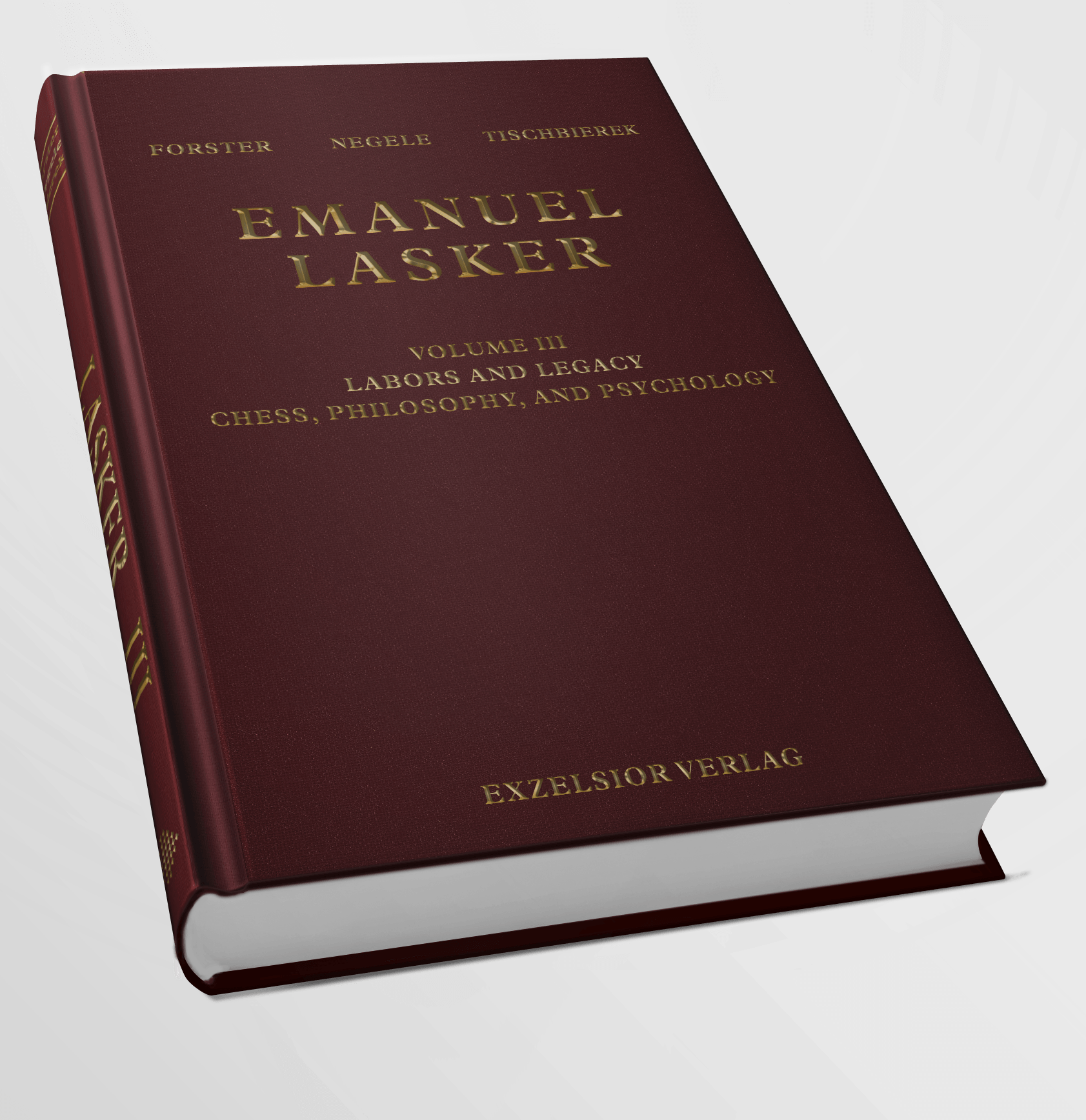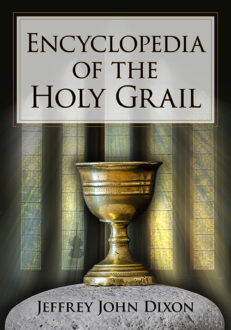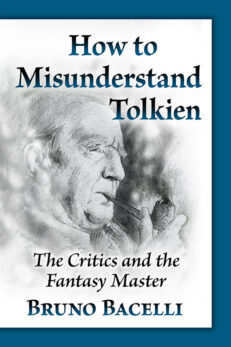Emanuel Lasker, Volume 3
Labors and Legacy: Chess, Philosophy, and Psychology
$79.95
Out of stock
About the Book
By special arrangement with German publisher Exzelsior Verlag, McFarland is reselling the third and final volume in the new, English–language series about German chess player and world champion Emanuel Lasker. This is a multicontributor biographical work, with chapters by a number of acclaimed chess historians.
This final volume of the Lasker trilogy covers the later part of his life from 1914 onwards and his manifolds ambitions and writings in chess and science. The biographical compass by Richard Forster shows the ups and downs of the world champion during World War I, his loss of the world championship, the subsequent economic crisis in Germany, the raise of the Nazis, and Lasker’s escape, illustrated with dozens of private documents and letters. Sergey Voronkov paints a detailed picture of Lasker’s fantastic tournament successes in Russia between 1896 and 1936 as well as the frightening circumstances of Lasker and his wife’s life in Soviet Russia in the mid-1930s. Jan Sprenger, Marco Baldauf, Ulrich Sieg, and Fernand Gobet share illuminating thoughts on Lasker’s endeavors as a (Jewish) intellectual in the post-war era, his scientific ambitions as a philosopher as well as his late unpublished work on psychology, which is discussed here for the first time ever.
Egbert Meissenburg and Richard Forster follow with a meticulous overview of Lasker’s rich oeuvre as a writer on chess and other games, mathematics, philosophy, and much else, with translation into more than twenty languages. Herbert Bastian analyzes in detail Lasker’s impact as a chess writer and teacher, while Mihail Marin provides fresh insights into Lasker’s best games and spectacular success in his sixties, when in Moscow 1935 he still kept up with the world’s best.
*This item is not eligible for promotional or wholesale discounts.
About the Author(s)
Bibliographic Details
Edited by Richard Forster, Michael Negele, and Raj Tischbierek
Foreword by John Nunn
Format: library binding (7″ x 10″)
Pages: 480
Bibliographic Info: 190 photos
Copyright Date: 2022
pISBN: 9783982386416
eISBN: n/a
Publisher: Exzelsior Verlag GmbH
Table of Contents
Foreword by John Nunn
1. A Biographical Compass, Part III
(Richard Forster)
2. Lasker and Russia
(Sergey Voronkov)
3. Lasker, The Philosopher
(Jan Sprenger & Marco Baldauf)
4. Lasker and Judaism
(Ulrich Sieg)
5. The Psychology of Games
(Fernand Gobet)
6. Emanuel Lasker’s Chess Columns
(Richard Forster)
7. Bibliography of Lasker’s Writings
(Egbert Meissenburg)
8. Lasker as a Chess Teacher
(Herbert Bastian)
9. An Impressive Coda
(Mihail Marin)
Book Reviews & Awards
REVIEWS OF VOLUME ONE:
- Finalist, Book of the Year–English Chess Federation
- “The editors combined with ten (!) high calibre contributors to produce an outstanding work on Lasker’s early years up to about 1909. All aspects of Lasker’s complex character are explored. Not all the many chapters can be mentioned here; two outstanding are the examination of the World Championship match with Tarrasch in 1908 and Marin’s deep analysis of Lasker’s style. Expensive, but worth every penny.”–English Chess Federation
- “For a player with such a prodigious career as Lasker’s, the widely spread syntagm that he was mainly paying attention to the psychological aspects of the over the board fight is not only unfair, but also presents the risk of lowering his purely technical merits in the public opinion’s eyes. There are a few more objective and deeper elements that make his best games instructive for the modern player. Lasker was an universal player, able to find his way in a wide range of positions, from the most quiet (or boring) ones to the most chaotic and irrational ones. As a general thread, he possessed the ability of generating ideas out of the blue, as a player who would not just follow the requirements of the position, but make the game flow along his own plans. From this point of view I would compare him with David Bronstein and Magnus Carlsen. In an era dominated by computers, the modern player can learn from Lasker’s games how to think independently, a most dangerous weapon against the opponents dependent on the dry “+1.00” way of reasoning. On more concrete terms and even though by far not all his games are linear and flawless, players of all ages and levels will find a handful of positions and sequences perfectly suited for training or learning and, quite surely a lot of fun.”–Mihail Marin
- “This volume, the first of three, presents Lasker in a depth and breadth never before seen. His life, in all its astonishing facets, is reflected in the many contributions by eminent figures in their fields. I can’t speak for my own contribution, but I can for the rest of the book: beautifully bound, handsomely illustrated, finely written, impeccably edited, Emanuel Lasker is that rarest of chess biographies: a worthy historical tribute and a fascinating read.” — John Hilbert




